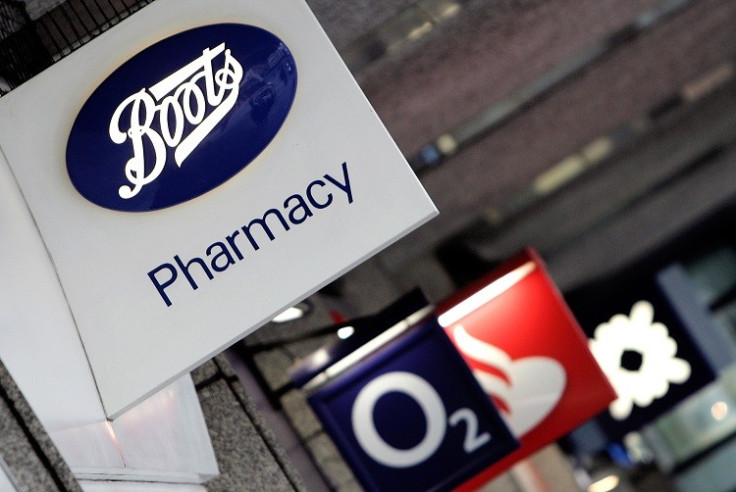Why It Made Sense for Walgreens Not to Take Advantage of Tax Inversions

Walgreens recently announced that it would exercise its option to acquire the remaining 55% of Boots it did not already own, but would do so the old fashioned way – by buying it for £3.13bn plus about 144.3 million shares of Walgreens stock.
Walgreens decided not to utilise an "inversion" structure.
Why not? In reality, there are a number of reasons that likely influenced the Walgreens decision, but at bottom it seems apparent that the projected economics (including the assessment of the expected realisation of favourable tax benefits) indicated the more conventional purchase route was better.
This is the beginning, not the end, of the story.
Certainly, there was much political pressure on Walgreens and hype in the press about the "unpatriotic" utilisation of an inversion structure pursuant to which Walgreens would have allegedly "renounced its US citizenship" should the acquisition have taken that form.
Poppycock.
Tax Inversions
Tax inversions are neither "unpatriotic" nor do the companies "renounce" their US "citizenship" in the process.
As a famous US judge Judge Learned Hand said in a famous US tax case 80 years ago: "Anyone may so arrange his affairs that his taxes shall be as low as possible; he is not bound to choose that pattern which will best pay the Treasury. There is not even a patriotic duty to increase one's taxes."
What is Corporate Tax Inversion?
Corporate inversion as a strategy is used by companies that receive a significant portion of their income from foreign sources, since that income is taxed both abroad and in the country of incorporation. Companies undertaking this strategy are likely to select a country that has lower tax rates and less stringent corporate governance requirements.
Source: Investopedia
While there was certainly strong moral suasion imposed on the Walgreens leadership to resist utilisation of an inversion structure, the fact is that the Walgreens board of directors was bound by its fiduciary duty to its shareholders to make the best decision it could for the company.
If the US government threatened Walgreens with a loss of government contracts for considering, or in fact utilising, an inversion that, in the board's informed opinion would have been the best result for maximising shareholder value, it would be an unfortunate attempt at arm-twisting to deny Walgreens the right to apply the law as currently written.
Walgreens itself is no less a US company before and after the acquisition. Corporations don't have citizenship: people do. Companies are subject to US tax either because they are incorporated in the US – like Walgreens – (which makes them a tax "resident") or because they are doing business in the States or have other US source income.
We on the American side of the pond do not have a "management and control" test of corporate tax residence.
Whether companies like Walgreens and Boots combine their entities and businesses via an inversion structure, or through a direct purchase (as will occur here), Walgreens itself would still be incorporated in the US and hence remain a US corporation for U. tax purposes just as it was beforehand.
That means that Walgreens, and all of its US and foreign subsidiaries would be subject, before and after, to all the same US tax rules, including our rules relating to taxation of "controlled foreign corporations" (or CFCs), transfer pricing, etc. In other words, an inversion arrangement would not change the US tax rules applicable to Walgreens and its foreign affiliates.
Why Walgreens Didn't Invert Tax
A separate reason why an inversion structure apparently would not have worked here is that Walgreens already owns 45% of Boots.
To implement an inversion under the new "normal" structure utilised in other inversions, a new non-U.S. parent corporation would have to be created – and managed and controlled in a low or no tax jurisdiction – to acquire the two "chains" of entities (that is, the Walgreens chain and the Boots chain, which would become "brother/sister" chains under the common owner).
But, from a US tax perspective, the acquisition by the new "parent" of the existing block of Boots stock held by Walgreens would have triggered a US corporate tax at a 35% rate at the Walgreens entity level.
Under the original option, Walgreens was reported to have the right to buy the optioned 55% for about $9.5bn (in cash and stock). But, if they wanted to use an inversion structure and consolidate all stock of both chains in the new parent, it would have had to acquire the preexisting block of Boots stock from Walgreens (or had Walgreens pay a corporate level tax if the block was distributed up as a dividend) based on current fair market value.
Based on the reported option price of the 55% block, the contemporaneous cost of the existing 45% block now would be worth about $7.7bn.
However, since Walgreens acquired that 45% block for $6.7bn, the company would apparently have a US tax gain of about $1bn (unless it chose to risk a transfer pricing dispute).
At a US tax rate of 35%, this would be a high additional cash tax cost to pay just to get the structure in place (or else only 55% of Boots would have been directly owned by the new parent company, while 45% would have been owned, in a circular and unwieldy governance structure, by Walgreens itself).
US Corporate Tax
These U. corporate-level taxes would have been in addition to the taxes that the U.S. shareholders of Walgreens would have had to pay when they received stock (and/or cash) from the new "parent" as part of the inversion acquisition.
This shareholder tax liability from inversion transaction seems to get too little attention, but is a significant element overall in inversions. Unfortunately, the current taxation of US shareholders versus the overall long term, after-tax shareholder value enhancement (all in) of an inversion arrangement pits the same constituency against itself when the Board of Directors has to evaluate the fiduciary, strategic and tax implications of inversions.
Here, no such contest will arise, because there will be no current tax on the U.S. shareholder/owners of Walgreens when the company simply acquires the remaining 55% of Boots.
Was it Worth It?
Another reason why an inversion structure may not have produced compelling tax savings is that Walgreens is more of a bricks-and-mortar retailer.
Walgreens makes money by selling products from their stores to their retail customers in its local communities.

The same US CFC tax rules that commentators complain about in the context of companies that arguably exploit royalty income "loopholes" when internationally developing and/or licensing technology or intellectual property work differently when applied to Walgreens (and, in the future, Boots).
Under those CFC rules, if a store owned by a foreign subsidiary of Walgreens sells products to customers in the same community (that is, within the country of incorporation of the foreign subsidiary that owns the store), there is no US tax due currently with respect to those sales. Similarly, a sale of pharmaceutical products manufactured in-country by subsidiaries of Walgreens (or Boots, after the acquisition) are also not subject to current US tax under the CFC rules.
These "same country" exceptions under US tax law will continue to apply after the acquisition of Boots is complete, even as they apply today. Those store sales, or manufactured pharmaceutical sales, will in the future be subject to exactly the same local tax obligations as they are (or would be) today.
In other words, Walgreens did not have to go through an inversion structure to take advantage of these provisions of US tax law or derive a tax benefit locally to which it would otherwise not be entitled.
While much will continue to be written about the Walgreens decision not to pursue an inversion structure to acquire Boots, that decision (and the "credit" being taken by U.S. politicians) may tend to "chill" other companies considering such acquisitions.
But, the fact is that the Walgreens/Boots circumstances are uniquely their own and constitute something of an outlier when compared to other possible trans-border combinations not involving preexisting ownership of a substantial block of stock of the target.
Ken Levinson is a partner at law firm Faegre Baker Daniels LLP.
© Copyright IBTimes 2025. All rights reserved.




















